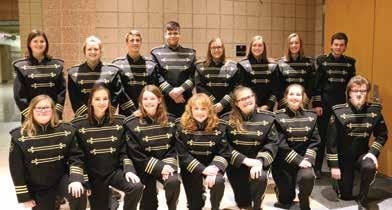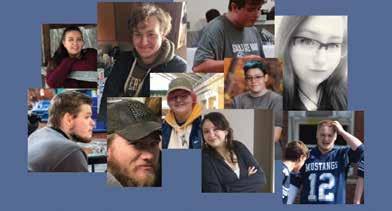
1 minute read
positive, responsible behavior
assets in action
40 DEVELOPMENTAL ASSETS
Bullock Creek High School Band Seniors
ACEA (Academic and Career Education Academy) Seniors


HH Dow High School Volleyball Seniors
HH Dow High School Senior Swimmers

SUPPORT
1. Family support: Family life provides high levels of love and support. 2. Positive family communication: Young person and her or his parent(s) communicate positively, and young person is willing to seek advice and counsel from parent(s). 3. Other adult relationships: Young person receives support from three or more nonparent adults. 4. Caring neighborhood: Young person experiences caring neighbors. 5. Caring school climate: School provides a caring, encouraging environment. 6. Parent involvement in school: Parent(s) are actively involved in helping young person succeed in school.
EMPOWERMENT
7. Community values youth: Young person perceives that adults in the community value youth. 8. Youth as resources: Young people are given useful roles in the community. 9. Service to others: Young person serves in the community one hour or more per week. 10. Safety: Young person feels safe at home, at school, and in the neighborhood.
BOUNDARIES & EXPECTATIONS
11. Family boundaries: Family has clear rules and consequences and monitors the young person’s whereabouts. 12. School boundaries: School provides clear rules and consequences. 13. Neighborhood boundaries: Neighbors take responsibility for monitoring young people’s behavior. 14. Adult role models: Parent(s) and other adults model positive, responsible behavior. 15. Positive peer influence: Young person’s best friends model responsible behavior. 16. High expectations: Both parent(s) and teachers encourage the young person to do well.
CONSTRUCTIVE USE OF TIME
17. Creative activities: Young person spends three or more hours per week in lessons or practice in music, theater, or other arts. 18. Youth programs: Young person spends three or more hours per week in sports, clubs, or organizations at school and/or in the community. 19. Religious community: Young person spends one or more hours per week in activities in a religious institution. 20. Time at home: Young person is out with friends “with nothing special to do” two or fewer nights per week.







